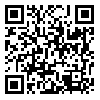

BibTeX | RIS | EndNote | Medlars | ProCite | Reference Manager | RefWorks
Send citation to:
URL: http://jdisabilstud.org/article-1-1822-fa.html
2- گروه روانشناسی تربیتی، دانشکدهٔ روانشناسی و علوم تربیتی، دانشگاه آزاد اسلامی، واحد قم
زمینه و هدف: پرخاشگری با اختلالهای درخورتوجه در عملکرد اجتماعی، عاطفی و آموزشی در کودکان همراه است. پژوهش حاضر با هدف بررسی اثربخشی آموزش مداخلهٔ دلبستگیمحور بر کاهش پرخاشگری پسران دبستانی انجام گرفت.
روشبررسی: این مطالعه از نوع نیمهآزمایشی با طرح پیشآزمون و پسآزمون و پیگیری با گروه گواه بود. جامعهٔ آماری را دانشآموزان پسر دورهٔ دبستان منطقهٔ چهار شهر تهران در سال تحصیلی ۹۸-۱۳۹۷ تشکیل دادند. روش نمونهگیری بهصورت دردسترس و گمارش تصادفی بود؛ به این ترتیب که از بین مادران دارای پسران پرخاشگر، تعداد سی مادر بهصورت دردسترس انتخاب شده و بهشکل گمارش تصادفی در گروههای آزمایش و گواه گمارده شدند. مادران حاضر در گروه آزمایش، مداخلهٔ درمانی را طی ده جلسه دریافت کردند. ابزار پژوهش، پرسشنامهٔ پرخاشگری (شهیم، ۱۳۸۵) بود. دادههای حاصل از پژوهش بهشیوهٔ تحلیل واریانس با اندازههای مکرر در سطح معناداری ۰٫۰۵ توسط نرمافزار آماری SPSS نسخهٔ ۲۱ تجزیهوتحلیل شد.
یافتهها: نتایج نشان داد، میانگین پرخاشگری و خردهمقیاسهای آن در پسآزمون درمقایسه با پیشآزمون در گروه آزمایش بهلحاظ عددی کاهش قابل ملاحظهای دارد؛ اما در پیگیری این میانگین مجدداً افزایش پیدا کرده است. آنالیز واریانس برای اندازهگیریهای مکرر بر دادهها مشخص کرد که اثر زمان معنادار است (۰٫۰۰۱>p)؛ اما اثر گروه معنادار نیست؛ این امر مؤید آن بود که مداخلهٔ دلبستگیمحور فرزنددرمانی در مادران دارای کودک پرخاشگر اثر ماندگار و طولانیمدت ندارد.
نتیجهگیری: براساس یافتههای این پژوهش آموزش مداخلهٔ دلبستگیمحور میتواند بهعنوان روشی کارآمد جهت کاهش پرخاشگری کودکان استفاده شود.
| بازنشر اطلاعات | |
 |
این مقاله تحت شرایط Creative Commons Attribution-NonCommercial 4.0 International License قابل بازنشر است. |



